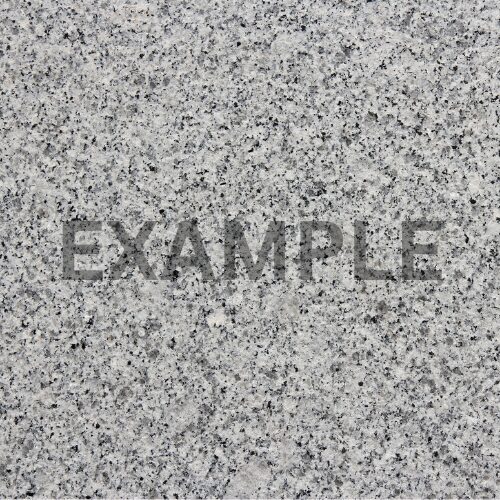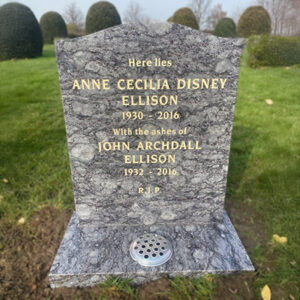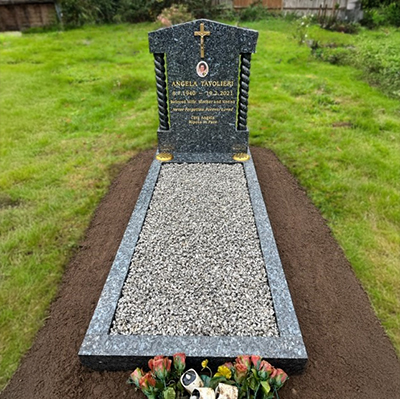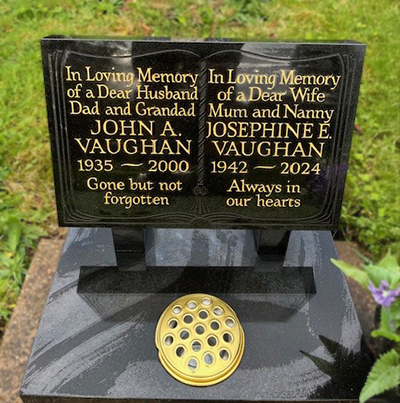Stone Type: Granite
Granite is a metamorphic rock formed from layers of shale and clay that have undergone pressure over millions of years. It usually has a base colour with flecks of one or more others across the face of the stone, these come in a wide spectrum with some flecks even appearing metallic in colour. These natural variations make every granite memorial one of a kind.
Granite Stone Information Card
Stone Type: Granite
Colour Range: Reds, blacks, greys, purples, blues, greens, browns, whites, with flecking and mottling
Finish Options: Honed, polished
Durability Level: High
Porosity: Low (good water resistance)
Weather Resistance: Good (frost and rain resistant)
Suitability For: Headstones, plaques, paving, roofing, wall cladding
Maintenance Needs: Low (regular gentle clean, avoid impact damage)
Longevity: Can endure for centuries

Example of Granite Stone
Why consider granite stone?
Granite is an ideal material for memorials due to its extreme hardness, which makes it durable with low porosity. This means that some of the impacts of weathering that you will see on other stone types, such as erosion or the growth of algae, do not occur.
Granite comes in a wide variety of colours and so it is possible to choose something that looks very different from other memorials while maintaining a conventional shape. Darker granites can provide a striking finish when combined with gilded lettering; and a black granite and gilded headstone gives an appearance full of contrast, where the lettering has real prominence.
Not all granites are accepted in all settings. Churchyard rules usually only permit light- to medium-grey granites rather than darker and coloured varieties, and do not allow polished granite memorials. Some churchyards also have rules about lettering colours which precludes certain varieties to ensure the lettering can be read against the surface of the stone. Because granite is so hard, it cannot be handcarved and lettering has to be sandblasted.
Many granites are quarried overseas. Cornish and Norden granite are sourced in Cornwall and Scotland respectively, but experience periods of scarcity which can affect cost and availability.
Pros
Highly durable and long lasting- resistant to weather and water
Variety of colours and finishes so lots of scope to customise the finish
Suited to memorials of all shapes and sizes
Easy to maintain– benefits from regular gentle cleaning but not essential
Lower in cost with similar-looking options available at a variety of prices
Cons
Lettering must be sandblasted as the stone is too hard to carve by hand
Ornamentation and carvings must be painted or gilded as they do not show up against the grain
Appearance is subject to variation in colour and the type and size of markings as they occur naturally and can develop further over time
Carbon footprint implications as most granite is quarried overseas so has to be transported to the UK
Examples of our work with granite stone...



Are you looking to creating a lasting tribute in granite?
Get in touch with our team, we are here to help.

